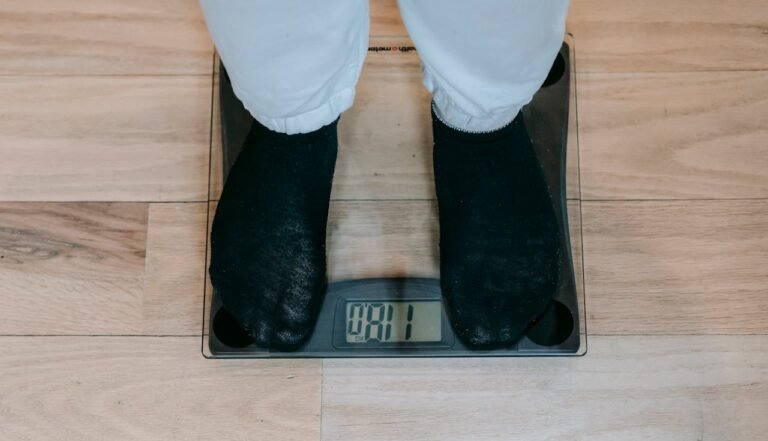Drake Hogestyn Weight Loss: Proven Best Secrets – Drake Hogestyn’s weight loss success is built on proven, simple secrets that focus on sustainable lifestyle changes, not quick fixes. Discover how to achieve your own body transformation with these effective strategies.
Remember those times you’ve stood in front of the mirror, wondering when those stubborn extra pounds would finally melt away? You’ve tried the fad diets, pushed through exhausting workouts, and even skipped meals, only to feel disheartened when the scale barely budged. It’s a familiar struggle for many, leaving us feeling lost and frustrated. But what if the path to a healthier, happier you wasn’t about extreme measures, but about understanding a few key, powerful secrets? What if you could achieve lasting results by implementing simple, proven strategies?
The journey to weight loss can often feel overwhelming, like trying to navigate a maze with no clear exit. Many of us are bombarded with conflicting advice, miracle pills, and intense workout programs that promise the moon yet often lead to burnout and disappointment. This constant push and pull can leave even the most motivated individuals feeling defeated. But here’s the good news: adopting a healthy lifestyle doesn’t have to be a battle. It can be a journey of discovery, filled with small victories and sustainable habits that lead to significant, long-term changes.

We’re going to delve into the effective, time-tested principles that contribute to successful weight loss, inspired by individuals who have transformed their lives. These aren’t secret, complicated formulas, but rather practical, real-world strategies that anyone can adopt. Get ready to uncover the best-kept secrets to unlocking your own amazing transformation.
Understanding the Core Principles of Drake Hogestyn’s Approach
While Drake Hogestyn hasn’t publicly detailed an exhaustive weight loss plan, his evident commitment to well-being in various stages of his career suggests a focus on fundamental, healthy living principles. When we talk about “Drake Hogestyn weight loss,” we’re essentially looking at the universally effective strategies he likely embodies. These often revolve around a balanced approach that combines mindful eating, regular physical activity, and overall lifestyle adjustments for sustainable results. It’s less about a specific diet and more about a holistic commitment to health.
The key isn’t to mimic a celebrity’s exact routine, which may not be suitable or sustainable for everyone. Instead, it’s about extracting the core philosophies that underpin successful, long-term weight management. These principles are grounded in science and have been proven effective for countless individuals looking to shed weight and improve their health.
Secret #1: Nourish Your Body with Whole Foods
The foundation of any successful weight loss journey lies in what you eat. Focusing on whole, unprocessed foods is a game-changer. Think of your body as a finely tuned engine; it performs best when fueled with high-quality, natural ingredients. Processed foods, while convenient, often contain excess sugars, unhealthy fats, and sodium, which can hinder weight loss and negatively impact your health.
This means filling your plate with lean proteins, colorful fruits and vegetables, whole grains, and healthy fats. These foods provide essential nutrients, keep you feeling full and satisfied, and have a lower calorie density, allowing you to eat a satisfying amount without overconsuming calories.
For example, instead of reaching for a packaged snack bar, opt for a handful of almonds, an apple, or some Greek yogurt. These choices are not only more nutritious but also help control hunger pangs more effectively.
Actionable Steps:
- Prioritize fruits and vegetables: Aim to fill half your plate with them at every meal. They are packed with vitamins, minerals, and fiber.
- Choose lean protein sources: Chicken breast, fish, beans, lentils, and tofu are excellent options. Protein helps with satiety and muscle repair.
- Opt for whole grains: Switch from white bread and pasta to whole wheat bread, brown rice, and quinoa. They provide sustained energy and fiber.
- Include healthy fats: Avocados, nuts, seeds, and olive oil are crucial for hormone production and nutrient absorption.
- Limit processed foods and added sugars: Read labels and be mindful of hidden sugars in drinks, cereals, and sauces.
Consider this: A study published in the National Institutes of Health (NIH) emphasizes the role of whole foods in weight management by promoting satiety and reducing overall calorie intake.
Secret #2: The Power of Portion Control and Mindful Eating
Understanding how much you eat is just as important as what you eat. Overeating, even of healthy foods, can lead to a calorie surplus, which prevents weight loss. Portion control is about being aware of serving sizes and stopping when you are comfortably full, not stuffed.
Mindful eating takes this a step further. It involves paying attention to your food, your hunger and fullness cues, and your eating experience. This means eating without distractions, savoring each bite, and truly listening to your body’s signals. This practice can help prevent overeating and foster a healthier relationship with food.
Think about it: How often do you find yourself eating in front of the TV, on your phone, or while working? When you’re not fully present, it’s easy to consume more food than you realize until you’re uncomfortably full.
Putting it into Practice:
- Use smaller plates: This simple trick can visually make your portions look larger, helping you feel satisfied with less food.
- Chew slowly: Give your brain time to register that you’re eating and signal fullness. Aim for at least 20 chews per bite.
- Listen to your hunger cues: Eat when you’re moderately hungry and stop when you’re 80% full.
- Avoid eating while distracted: Sit down at a table, focus on your meal, and enjoy the experience.
- Read food labels carefully: Understand serving sizes and calorie counts to make informed decisions.
Sarah, a busy mom of two, shared how she finally started losing weight after years of struggle. “I realized I was eating way too distractedly, then feeling guilty about it. By just sitting down and enjoying my meals, truly tasting my food, I started noticing I was full sooner and actually craving healthier options. It was a huge shift.” She lost 15 pounds in 3 months by implementing these small, mindful changes, coupled with a daily 30-minute walk.
Secret #3: Incorporate Regular Physical Activity
While diet plays a significant role in weight loss, exercise is crucial for overall health, boosting metabolism, building muscle, and improving your mood. For beginners, the goal isn’t to become a marathon runner overnight, but to find movement that you enjoy and can sustain.
Combining cardiovascular exercise with strength training offers the most comprehensive benefits. Cardio burns calories and improves heart health, while strength training builds muscle, which increases your resting metabolic rate—meaning you burn more calories even when you’re at rest.
A Beginner’s Activity Plan Example:
This table outlines a starting point for incorporating physical activity into your week. Remember, consistency is key!
| Activity | Day 1 | Day 2 | Day 3 | Day 4 | Day 5 | Day 6 | Day 7 |
|---|---|---|---|---|---|---|---|
| Cardio | 30 min Brisk Walking | Rest | 30 min Brisk Walking | Rest | 30 min Brisk Walking | Active Rest (light stretching, leisurely walk) | Rest |
| Strength Training | Bodyweight exercises (squats, push-ups on knees, lunges) – 2 sets of 10-12 reps | Rest | Rest | Bodyweight exercises (plank, glute bridges, bird-dog) – 2 sets of 10-12 reps | Rest | Light walk or stretching | Rest |
As you get stronger, you can gradually increase the duration, intensity, or resistance of your workouts. The American Heart Association recommends at least 150 minutes of moderate-intensity aerobic activity or 75 minutes of vigorous-intensity aerobic activity per week, along with muscle-strengthening activities at least two days a week.
Secret #4: Prioritize Sleep and Stress Management
Weight loss is not just about diet and exercise; your mental and emotional well-being plays a significant role. Chronic stress and lack of sleep can disrupt hormones that regulate appetite, leading to increased cravings for unhealthy foods and difficulty losing weight.
When you’re stressed or sleep-deprived, your body releases cortisol, a hormone that can promote fat storage, especially around the abdomen. It can also increase your appetite and lead to poor food choices.
Making sleep a priority and finding healthy ways to manage stress can have a profound impact on your weight loss journey. This might involve establishing a consistent sleep schedule, practicing relaxation techniques like deep breathing or meditation, or engaging in hobbies you enjoy.
Strategies for Better Sleep and Stress Relief:
- Establish a consistent sleep schedule: Go to bed and wake up around the same time each day, even on weekends.
- Create a relaxing bedtime routine: This could include a warm bath, reading a book, or listening to calming music.
- Limit screen time before bed: The blue light emitted from electronic devices can interfere with sleep.
- Practice stress-reduction techniques: Try meditation, deep breathing exercises, yoga, or spending time in nature.
- Stay hydrated throughout the day: Dehydration can sometimes be mistaken for hunger.
David, a 45-year-old who struggled with emotional eating, found that incorporating a 10-minute guided meditation each evening significantly reduced his late-night snacking. “I used to stress-eat cookies when I felt overwhelmed. Now, when those feelings arise, I pause, breathe, and remember I have tools to cope. It’s made a massive difference in my cravings and my sleep quality.”
Secret #5: Stay Hydrated for Optimal Health
Water is essential for life, and it plays a surprising role in weight loss. Adequate hydration can boost metabolism, help you feel full, and support overall bodily functions. Often, thirst can be mistaken for hunger, leading to unnecessary snacking.
Drinking water before meals can help reduce the amount of food you consume. It also aids in flushing out toxins and supports efficient digestion.
Aim to drink plenty of water throughout the day. Carry a reusable water bottle with you as a constant reminder.
Hydration Habits to Cultivate:
- Start your day with water: Drink a glass of water first thing in the morning.
- Drink water before meals: This can help curb your appetite.
- Carry a water bottle: Keep it with you and sip throughout the day.
- Infuse your water: Add fruits like lemon, cucumber, or berries for flavor if plain water is unappealing.
- Limit sugary drinks: Soda, sweetened teas, and juices add empty calories.
According to the National Institute of Diabetes and Digestive and Kidney Diseases (NIDDK), staying hydrated is a crucial part of a healthy diet, supporting metabolism and satiety.
Secret #6: Seek Support and Stay Accountable
Embarking on a weight loss journey can be challenging, and having a support system can make all the difference. Whether it’s friends, family, a support group, or a professional, sharing your goals and challenges can provide encouragement and help you stay on track.
Accountability partners can help you stay motivated. Knowing that someone else is aware of your goals can be a powerful incentive not to give up.
Don’t underestimate the power of connection. Sharing your journey with others who understand can alleviate feelings of isolation and provide valuable insights and encouragement.
Building Your Support System:
- Talk to friends and family: Share your goals and ask for their support.
- Find an accountability partner: Someone who is also working towards health goals.
- Join online communities or local support groups: Connect with others on similar journeys.
- Consider a professional: A registered dietitian or certified personal trainer can offer expert guidance.
Frequently Asked Questions About Drake Hogestyn Weight Loss Secrets
Can I lose weight without exercise?
While diet is the most significant factor in weight loss, you can lose weight without structured exercise by focusing on a calorie deficit through nutrition. However, incorporating physical activity offers numerous health benefits and supports sustainable weight management.
How quickly can I expect to see results?
Weight loss is a journey, and results vary from person to person. Aim for a healthy and sustainable rate of 1-2 pounds per week. Quick fixes are rarely sustainable and can be detrimental to your health.
What if I have a busy schedule?
Focus on small, consistent changes. Meal prepping on weekends, incorporating short bursts of activity (like a 15-minute walk), and choosing nutrient-dense foods can make a big difference even with a demanding schedule.
Are there any foods I should completely avoid?
Instead of complete avoidance, focus on moderation. Highly processed foods, sugary drinks, and excessive amounts of saturated fats are generally best limited. Prioritizing whole, nutrient-rich foods is key.
How do I stay motivated long-term?
Find activities and foods you genuinely enjoy. Celebrate small victories, track your progress, remind yourself of your ‘why,’ and lean on your support system. Focus on how you feel rather than just the number on the scale.
Is it okay to have cheat meals?
Occasional flexible meals can be part of a sustainable plan, helping to prevent feelings of deprivation and making the journey more enjoyable. The key is moderation and returning to your healthy habits afterward. Such “cheat meals” are best framed as planned indulgences rather than all-out binges.
Conclusion: Your Path to Sustainable Weight Loss Starts Now
The secrets to effective and lasting weight loss are not hidden magical formulas, but rather the consistent application of fundamental healthy lifestyle principles. By focusing on nourishing whole foods, practicing mindful eating and portion control, incorporating regular physical activity, prioritizing sleep and stress management, staying hydrated, and building a strong support system, you are well on your way to achieving your goals.
Remember, the journey to a healthier you is a marathon, not a sprint. Be patient with yourself, celebrate your progress, and don’t be afraid to adjust your strategies as needed. Your weight loss journey doesn’t have to be complicated. Start small, stay consistent, and remember—even the smallest steps lead to big results. You’ve got this!



